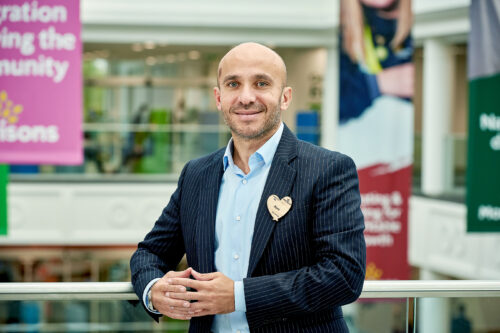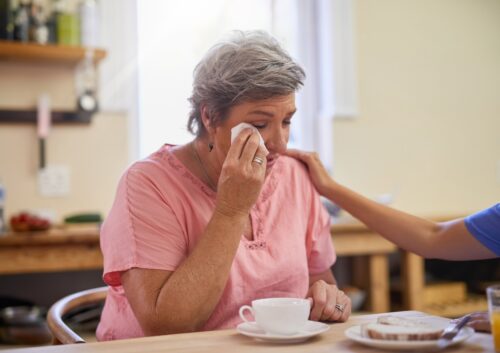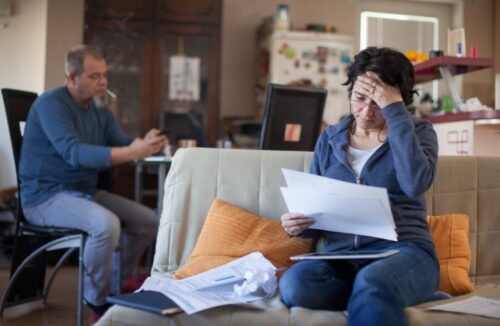Being a mental health first aider can be incredibly rewarding and it’s a vital role in the workplace. But it can also be very challenging. Our experts at Rightsteps spoke with two mental health first aiders to shine a light on how they put their self-care back on the to-do list.
We spoke with two mental health first aid trainers who gave us their top tips for self-care…
1. Maintain boundaries
“It’s really important that when we stand on the side and we throw the life ring into somebody, we don’t get in the water with them,” adds Kate. “It can be really easy to become very involved if a person is unwell or they are distressed or they’re upset, but if we get in the water with that person, it doesn’t help them and it doesn’t help us.”
2. Have a support network
“You need to be able to talk to people about the stuff going on with you too, confidentially, whether it’s to a manager or a peer or a colleague. Speak to someone who can help you set up your own coping mechanisms and coping strategies,” says Jenny.
“Workplaces can help by forming supportive networks and communities and bringing people together. It’s great for people to do the training, but they do need to know that they’re a part of something much bigger, so that they have somebody that they can turn to if they are supporting multiple people at the same time, or they haven’t got the time or capacity to support that person. That community is really, really important within every organisation,” adds Kate.
3. Take time out when you need to
You may be offered additional leave by your organisation in recognition of the toll that being a mental health first aider can have. If you do, make sure you take it and give yourself the time to unwind. If you’re not, find what time in the day you can to give yourself headspace – whether it’s a cup of tea in peace or a walk in the nearest park.
4. Switch off
“Self-care isn’t necessarily about luxury bubble baths and bottles of wine. Although for some people that may be what they do to, to decompress and switch off, it can be small and simple things like turning notifications off on your phone so that you don’t have interruptions switching your laptop off at a certain time,” says Kate.
5. Decompress in your own way
“I spend a lot of time outside. It’s my time just to decompress. Some people may turn to sports or creative hobbies, but it’s important that you find your thing that enables you just to process any conversations that you might have had, or any support that you might have been given to be able to then move forward with helping and supporting somebody else,” Kate advises.
6. Remember, you’re not supposed to be a Superhero
Grounding yourself in the understanding of what you’re there to do and what the limitations of the role are can help to reduce any pressure felt by mental health first aiders.
“What I thought it was before I received training was that I was going to be shown how to cure somebody of depression or of their anxiety,” says Jenny. “But in reality, it’s actually helping somebody when they’re in a state or mindset and steering them towards the right help. So, we’re not super humans, we’re just there as an interim person to assist them in a mental health emergency.”
How can GroceryAid help and offer additional support?
If you work in the grocery industry, you can call our free, confidential Helpline on 08088 021 122 anytime of the day or night and speak to a BACP accredited counsellor who will provide you with in the moment emotional support. Plus, you may be referred to Citizen Advice Bureau trained information specialists who are available 8am – 8pm Monday-Friday to provide advice on any practical issues that may be causing you stress or worry. For more information about what happens when you call the GroceryAid Helpline, read this blog. You can access free self-guided sessions from Rightsteps by visiting GroceryAid’s online health and wellbeing portal here.




